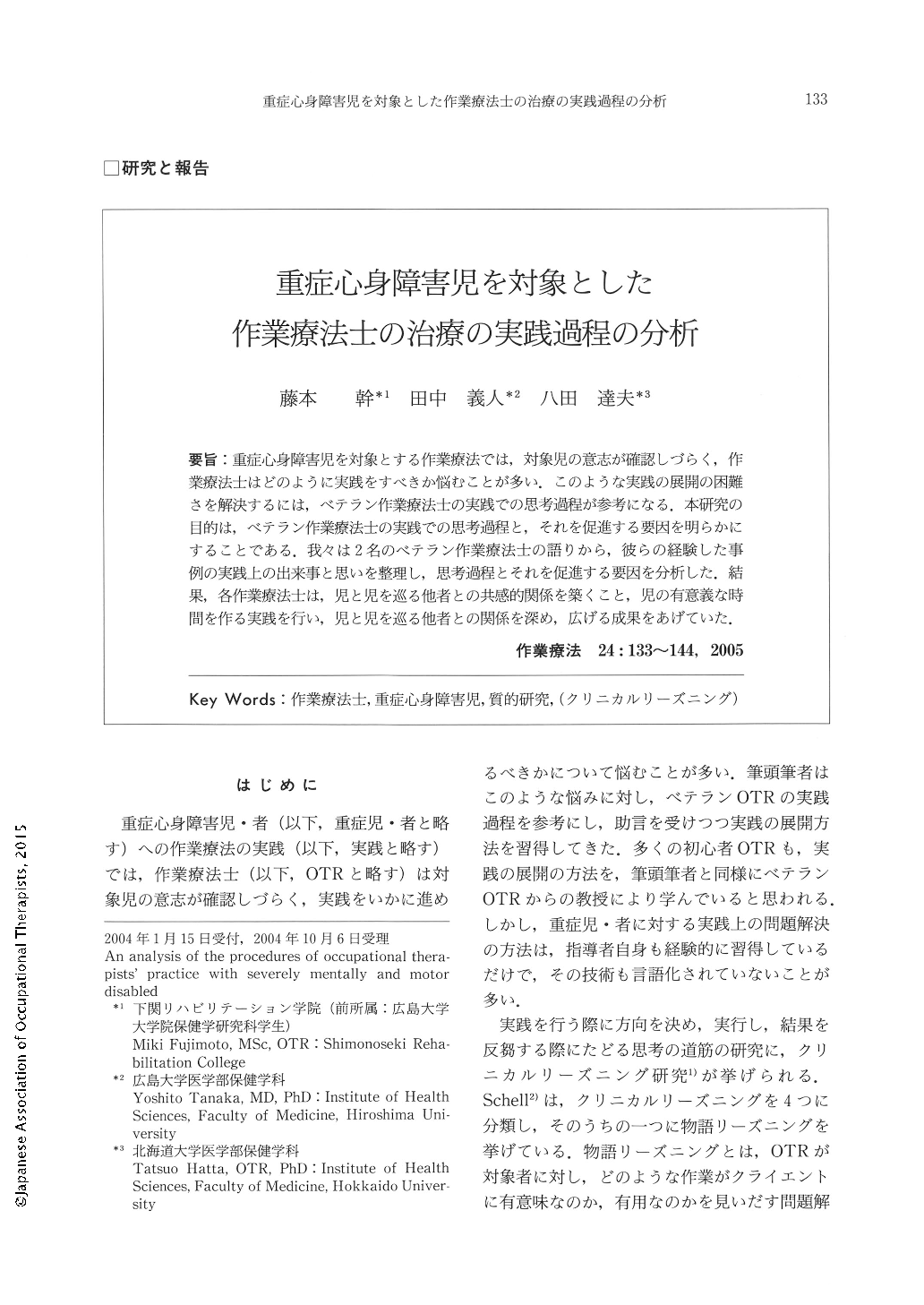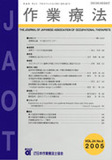Japanese
English
- 販売していません
- Abstract 文献概要
- 1ページ目 Look Inside
- 参考文献 Reference
- サイト内被引用 Cited by
要旨:重症心身障害児を対象とする作業療法では,対象児の意志が確認しづらく,作業療法士はどのように実践をすべきか悩むことが多い.このような実践の展開の困難さを解決するには,ベテラン作業療法士の実践での思考過程が参考になる.本研究の目的は,ベテラン作業療法士の実践での思考過程と,それを促進する要因を明らかにすることである.我々は2名のベテラン作業療法士の語りから,彼らの経験した事例の実践上の出来事と思いを整理し,思考過程とそれを促進する要因を分析した.結果,各作業療法士は,児と児を巡る他者との共感的関係を築くこと,児の有意義な時間を作る実践を行い,児と児を巡る他者との関係を深め,広げる成果をあげていた.
During the course of occupational therapy, we often wonder if our care giving can fulfill the unspoken desire of the disabled child or not. Especially when the child is a severely disabled one, the therapist often worries over what exactly to do for the child in actual care practices. To solve this problem, it will be helpful to analyze the thinking processes of the highly experienced occupational therapists actively engaged in the care practices of disabled children. In this study, we interviewed two highly experienced occupational therapists, and out of the narratives they gave, we reorganized the events and the thoughts they actually had in their care practices. It turned out that both of them had deepened relationships not only with the child but also with the concerned people around the child, and they accomplished this by conducting practices that created meaningful time in favor of the child, thus building up sympathetic relationships with them.

Copyright © 2005, Japanese Association of Occupational Therapists. All rights reserved.


